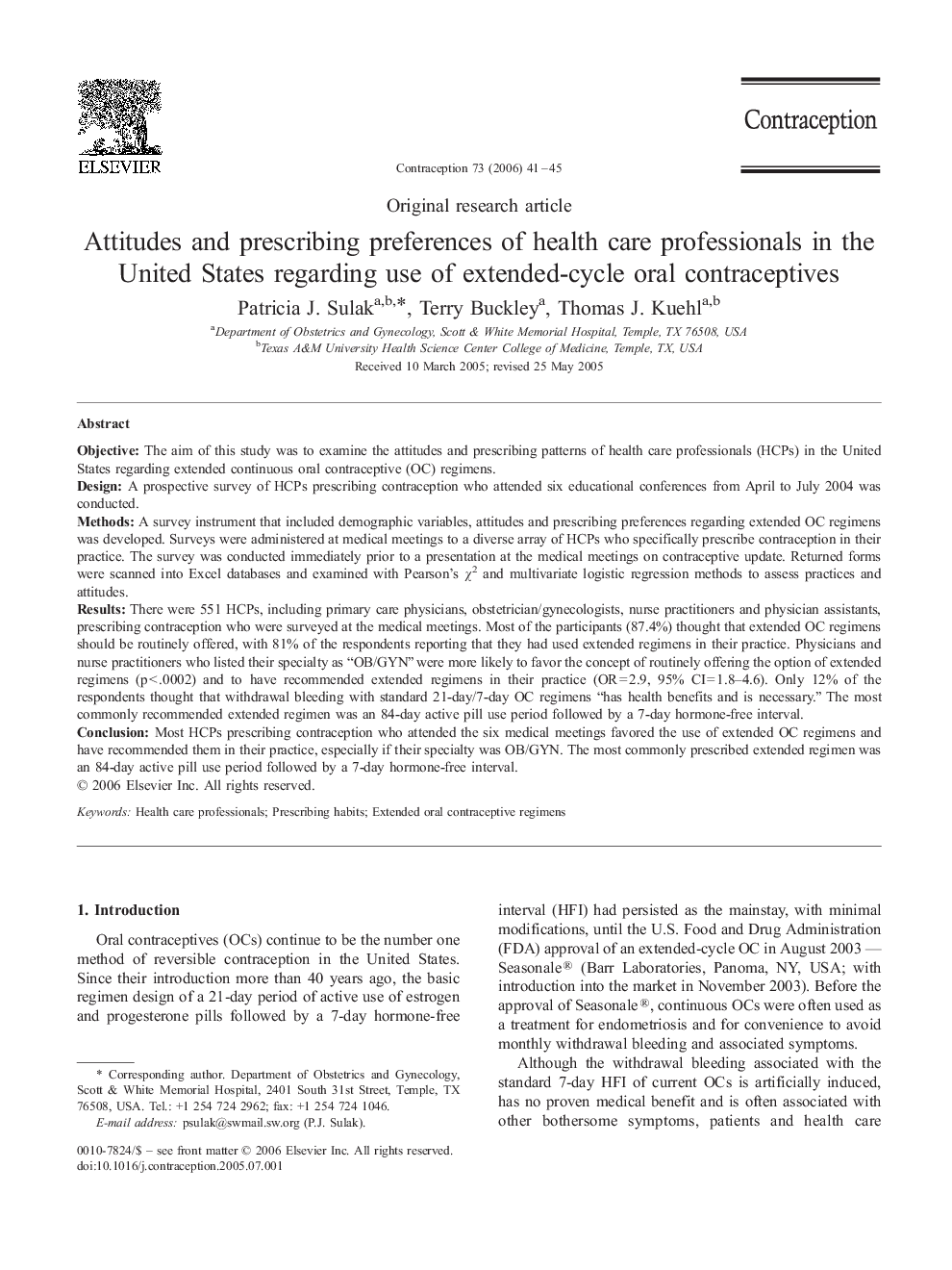| کد مقاله | کد نشریه | سال انتشار | مقاله انگلیسی | نسخه تمام متن |
|---|---|---|---|---|
| 3916241 | 1251542 | 2006 | 5 صفحه PDF | دانلود رایگان |

ObjectiveThe aim of this study was to examine the attitudes and prescribing patterns of health care professionals (HCPs) in the United States regarding extended continuous oral contraceptive (OC) regimens.DesignA prospective survey of HCPs prescribing contraception who attended six educational conferences from April to July 2004 was conducted.MethodsA survey instrument that included demographic variables, attitudes and prescribing preferences regarding extended OC regimens was developed. Surveys were administered at medical meetings to a diverse array of HCPs who specifically prescribe contraception in their practice. The survey was conducted immediately prior to a presentation at the medical meetings on contraceptive update. Returned forms were scanned into Excel databases and examined with Pearson's χ2 and multivariate logistic regression methods to assess practices and attitudes.ResultsThere were 551 HCPs, including primary care physicians, obstetrician/gynecologists, nurse practitioners and physician assistants, prescribing contraception who were surveyed at the medical meetings. Most of the participants (87.4%) thought that extended OC regimens should be routinely offered, with 81% of the respondents reporting that they had used extended regimens in their practice. Physicians and nurse practitioners who listed their specialty as “OB/GYN” were more likely to favor the concept of routinely offering the option of extended regimens (p<.0002) and to have recommended extended regimens in their practice (OR=2.9, 95% CI=1.8–4.6). Only 12% of the respondents thought that withdrawal bleeding with standard 21-day/7-day OC regimens “has health benefits and is necessary.” The most commonly recommended extended regimen was an 84-day active pill use period followed by a 7-day hormone-free interval.ConclusionMost HCPs prescribing contraception who attended the six medical meetings favored the use of extended OC regimens and have recommended them in their practice, especially if their specialty was OB/GYN. The most commonly prescribed extended regimen was an 84-day active pill use period followed by a 7-day hormone-free interval.
Journal: Contraception - Volume 73, Issue 1, January 2006, Pages 41–45